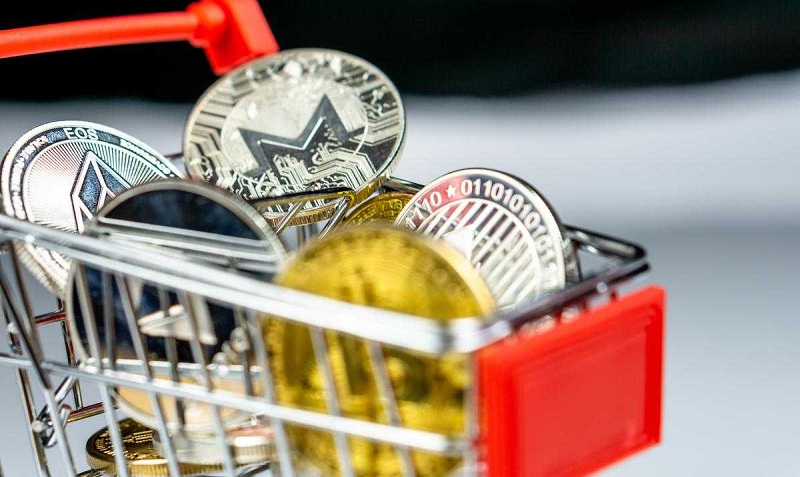New trends in sustainable business are reshaping the corporate world. Riding the wave of eco-awareness, companies are not just going green for good PR; they’re also seeing the color of money in sustainability. In this deep dive, we’ll explore how the circular economy is doing more than recycling efforts and how innovative green products meet rising consumer demand. We’ll scrutinize supply chains shifting towards ethical sourcing and the boost to brand reputation that follows. Plus, we’ll shine a light on how businesses are powering profits with renewable energy while cutting carbon footprints. Buckle up, it’s time to drive eco-friendly profits and pave the way for a sustainable future.
Embracing the Circular Economy: Beyond Recycling
Implementing Circular Economy Strategies
Circular economy strategies are changing the game. They turn waste into a resource. This way, we use things longer. This cuts down trash and saves money.
What are circular economy strategies? They’re ways to make and use products so nothing gets wasted. Think of using a glass jar over and over instead of throwing it away.
Businesses start by designing products that last. They choose materials you can reuse. They also plan how to fix things instead of tossing them out. All of this helps the planet.
Some companies offer products as a service. Like leasing a phone instead of buying. When you’re done, they take it back and make something new.
Using less stuff means less to throw away. We save trees, water, and energy. We also cut carbon footprints. It’s about being smart with what we have.
Success Stories of Circular Business Models
Lots of businesses are nailing the circular economy.
Take furniture companies. They rent out sofas and chairs. When you don’t need it, they take it back, fix it up, and rent it again.
Fashion brands are getting in on it, too. They make clothes to last. They take back old ones to make new stuff. This way, clothes stay out of landfills.
Some tech companies make gadgets easy to repair. They also use safe materials that can be recycled. When your gadget gets old, they make sure it gets used again.
These circular practices save resources and create less waste. They even make new jobs in repairing and recycling.
By doing this, companies keep materials in use. This makes our world cleaner. It also shows new ways to make money and help the earth.
In the end, the circular economy helps us all. It’s about making more with less and caring for our planet. And that’s something we can all get behind.

Green Product Innovations and Consumer Demand
Trends in Eco-friendly Product Development
We live in times when making things better for Earth matters a lot. Think about this: we all want cool stuff, but how can we get it without hurting our planet? That’s where green product innovations come in. Businesses nowadays are all over this trend. They’re trying to create products that don’t harm the environment. How? By finding new ways to make stuff and using things that can be used again.
For example, take shoes made from recycled bottles. Cool, right? Or packing that dissolves in water. No more trash! These ideas are making waves, and more companies are taking up green things. They want to stand out and show they care for our world. It’s not just about the products; it’s also about how they’re made. Less waste, less water, and being kind to nature is key.
We’re talking about businesses using fewer resources. They’re reducing how much they take from the Earth. They’re also cutting down on how much bad gas goes into the air. It’s a big job, but many are doing it and winning. When companies make stuff in a better way, everyone wins. Nature wins. People who buy the stuff win. Even the company wins because they use less and save more.
Consumer Preferences Shifting Towards Sustainability
Now let’s see what people like you and me think. More and more of us want stuff that’s good for the planet. We’re looking at labels and asking, “Is this good for Earth?” We want to buy from businesses that do good things for the world. Why? Because it feels right and makes us proud of what we buy.
People now are paying attention to what they purchase. If they see a brand that helps the world, they’re all in. They are willing to even pay a bit more for it. And guess what? Businesses see this, and they’re shifting gears. They’re making and selling things that we, as buyers, feel good about.
What’s more, folks want honesty. No fake promises or lying about being green. That’s big trouble for any business. Real green products are what’s in demand. It’s about being upfront and clear on how products help our world.
It’s amazing to see how caring for the Earth is changing stuff. It’s changing what we buy, how things are made, and even how businesses work. Everyone’s trying to do their part and it’s leading to a huge shift. People buying these products show that this change is here to stay. Now, isn’t that a great thing to be part of?
Businesses and us, the people who buy things, hold the power. By making green choices, we make the Earth a better place. It feels good, and it’s the smart thing to do. Every choice we make, no matter how small, can lead to big changes. So next time you’re about to buy something, think green! It’s the new trend, and it’s all about making better choices for our planet.

Sustainable Supply Chains and Ethical Sourcing
Advancements in Sustainable Supply Chain Management
In my work, I always push businesses to think about their supply chain. It’s all about getting goods without harming the planet. We now have amazing tech and plans to make this real. Smart companies use tools that track products from start to finish. They want to share this story with their customers. This practice cuts waste and saves money.
A supply chain is sustainable when it respects people and nature. Firms use less water and energy to make products. They also make sure workers get fair pay and work in safe places. More and more firms are seeing how important this is.
One way businesses do this is by keeping stuff in use as long as possible. They bring back old items and make new goods from them. This is a big win for both the earth and the business. But, it’s not just about recycling. A sustainable supply chain thinks ahead. It makes sure that every step does as little harm as possible.
The Impact of Ethical Sourcing on Brand Reputation
From coffee beans to clothes, where things come from matters. When a firm buys goods made the right way, people notice. We call this ethical sourcing. It shows a firm cares about more than just making money. This is big news.
Customers today want to support good firms. They look for businesses that help rather than hurt the earth. A good image can lead to a bigger fan base. And more fans can mean more cash. When customers trust a firm, they stick around.
Buying right also invites other firms to do the same. It’s like a chain reaction. One firm starts, others follow. Soon, everyone wants to be part of making the world better.
In the end, it’s simple. A firm that buys and makes goods ethically gets noticed. And being noticed for the good stuff is always better.
To sum up, fixing supply chains and buying ethically can shape how we see a brand. Companies that do good and share this story win our hearts. And when they win our hearts, they often see their profits grow too. Every step towards being more green also leads to being more loved. And I say, that’s a step worth taking.

Integrating Renewables: The Energy Transition in Business
Case Studies: Renewable Energy Adoption Success
Businesses big and small are making a huge switch. They are using sun, wind, and water for power. This bold move helps our planet and, guess what, their wallets too! Companies share stories of how they took on this big change. They tell us it’s not just good for Earth; it’s smart for business. They cut costs, win over customers, and lead the way.
Big names in tech and manufacturing proudly show off their clean power moves. They build giant solar farms and tall wind turbines. Even small firms join in, putting solar panels on rooftops. They see the light – renewable energy is the way to go. It trims down bills and carbon footprints. Real world cases prove it works.
Carbon Footprint Reduction through Clean Energy Solutions
Cutting carbon footprints is a hot topic. Every business, from cafes to clothing brands, asks, “How can we do better?” They hunt for energy that’s clean and won’t harm our air or water. They find answers in things like LED lights, energy-saving tech, and even smarter building designs.
They cut down on the bad stuff, the carbon, by using energy that renews itself. When companies make this leap, they shine a light for others to follow. They attract customers who care about Earth too. Everyone wants to buy from a business that thinks of the future.
Leaders in this field do more than just swap out power sources. They rethink how they work from the ground up. They ask tough questions and find bold answers. These changes lead to awards and green labels that tell the world, “We care for our home.” It’s a win for nature and for business!
Folks love to hear that the stuff they buy didn’t hurt the planet. That’s why businesses that take this green road often find success. They stand out, make more sales, and build a name as leaders in change. The energy switch not only keeps our air cleaner but also builds trust and loyalty with customers who see companies taking real action.
So, embracing renewables is not just a trend; it’s smart business that also looks after our world. Stories from companies of all sizes, in all places, show it’s not just talk. It’s action that paves the way for a brighter, cleaner future. And isn’t that something we all want to be a part of?
We dove deep into how businesses are changing the game with circular economy moves. We talked about how swapping to a circular model is more than just recycling. It’s a whole new way to do business. Many have done this already and their stories show it can work.
We also saw that stuff we buy is getting greener. Companies are making products that are better for the earth. Shoppers love this and are choosing eco-friendly things more and more.
Supply chains are getting cleaner, too. Firms are buying from places that don’t hurt people or the planet. This makes the company look good and keeps our world safe.
Lastly, we looked at how companies use sun and wind energy instead of dirty fuels. This cuts down on the nasty stuff we put into the air and can save money in the long run.
My final word? These steps matter. When companies care about the planet, it’s good for everyone. We all win when a business thinks about tomorrow, not just today’s profits. Let’s keep pushing for this change, one smart move at a time.
Q&A :
What are the latest developments in sustainable business practices?
With the increasing focus on environmental conservation and social responsibility, businesses across sectors are adopting innovative sustainability practices. Key developments include integrating clean technologies, emphasizing circular economies to reduce waste, and investing in sustainable supply chain operations. Additionally, there’s a significant trend in measuring and reporting on sustainability through frameworks like the Global Reporting Initiative and the Sustainable Development Goals (SDGs).
How are companies adapting to new sustainability trends?
Companies are adapting to new sustainability trends by incorporating green policies in their core business strategies. They’re investing in renewable energy sources, adopting sustainable materials in their products, reducing their carbon footprint, and enhancing their corporate social responsibility (CSR) activities. Additionally, businesses are engaging stakeholders and consumers through transparency and ethical marketing, and providing sustainability education and training to their employees.
What are the benefits of following the new trends in sustainable business?
Following the new trends in sustainable business offers several benefits, including cost savings through energy efficiency, improved brand reputation, increased competitive advantage, and access to new markets. Furthermore, sustainable practices lead to the long-term viability of resources, which is beneficial for the environment and society. Companies also experience increased customer loyalty as consumers are now more inclined to support environmentally-conscious businesses.
Are there financial incentives for companies to adopt sustainable business trends?
Yes, there are a range of financial incentives for companies adopting sustainable business trends. These can include tax credits for energy-efficient upgrades, subsidies for using renewable energy sources, and grants for sustainability research and development. Additionally, organizations involved in sustainable business often find it easier to attract investors and can benefit from lower insurance premiums due to reduced operational risks.
How does technology play a role in the new trends in sustainable business?
Technology is a driving force behind many of the new trends in sustainable business. Innovations such as artificial intelligence, the Internet of Things (IoT), and blockchain are being leveraged to optimize resource management, improve energy efficiency, and ensure ethical supply chains. Advanced data analytics enable companies to measure and understand their environmental impact precisely, leading to more effective sustainability strategies. Tech companies are also inventing new materials and solutions that support sustainable development goals.




